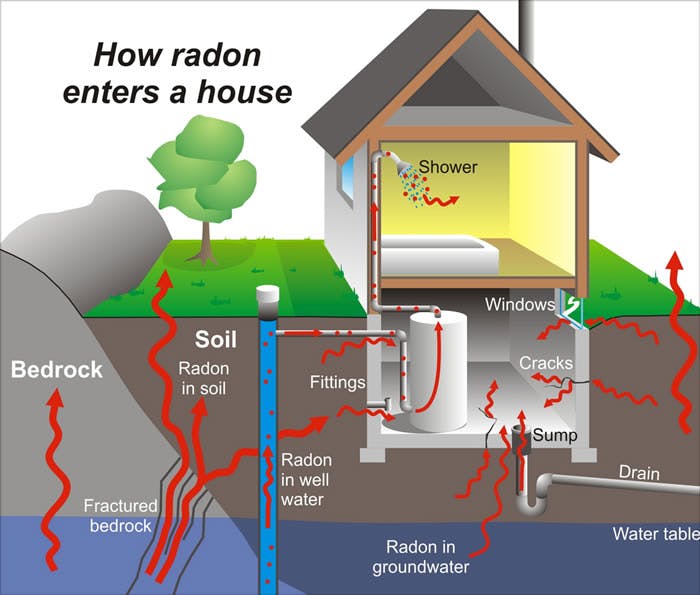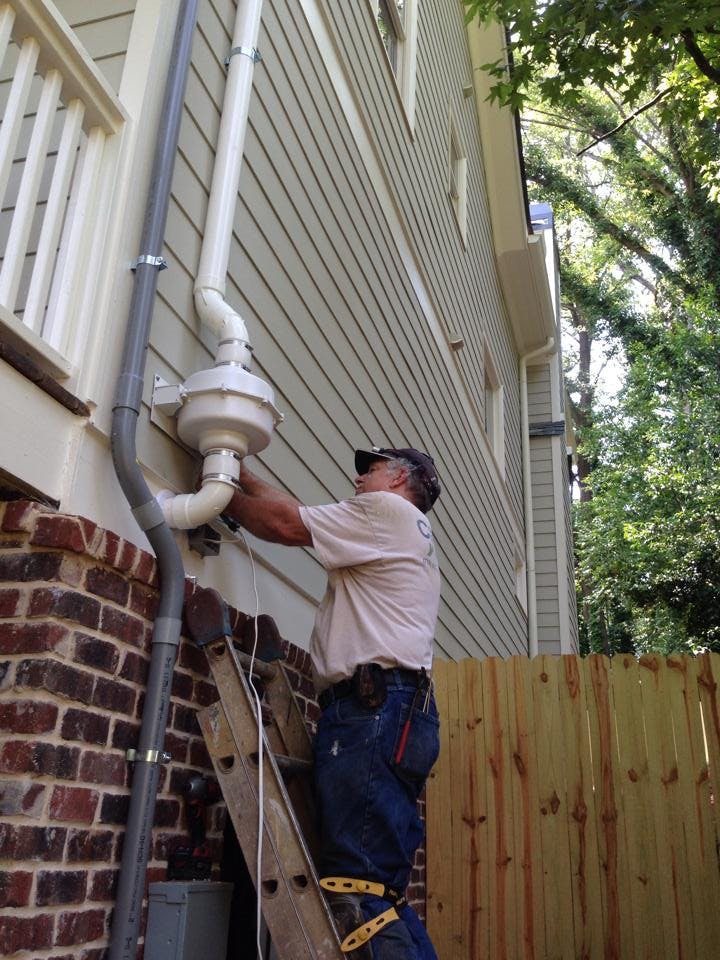How does radon enter my home?
Because homes and buildings typically have a lower air pressure than the surrounding outside air and soil, outside air is literally “sucked” into the home. This is due in part to the effects of exhaust fans working to expel interior air along with warm building air drafting through and out of the house. These mechanical and thermal effects cause outside air, full of radon and other gases, to be drawn into the building. Typically, this replacement air comes from the soil.
Whenever air enters a building from underneath, any radon present in the underlying soil will most likely enter the building as well. The level of radon is dependent on the soil conditions, which vary around the state of Georgia. Radon levels can also vary from season to season. This is a function of climate and the use of the home by occupants (windows/doors being open vs. being closed).

